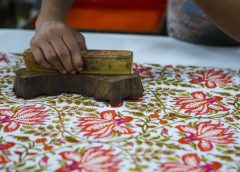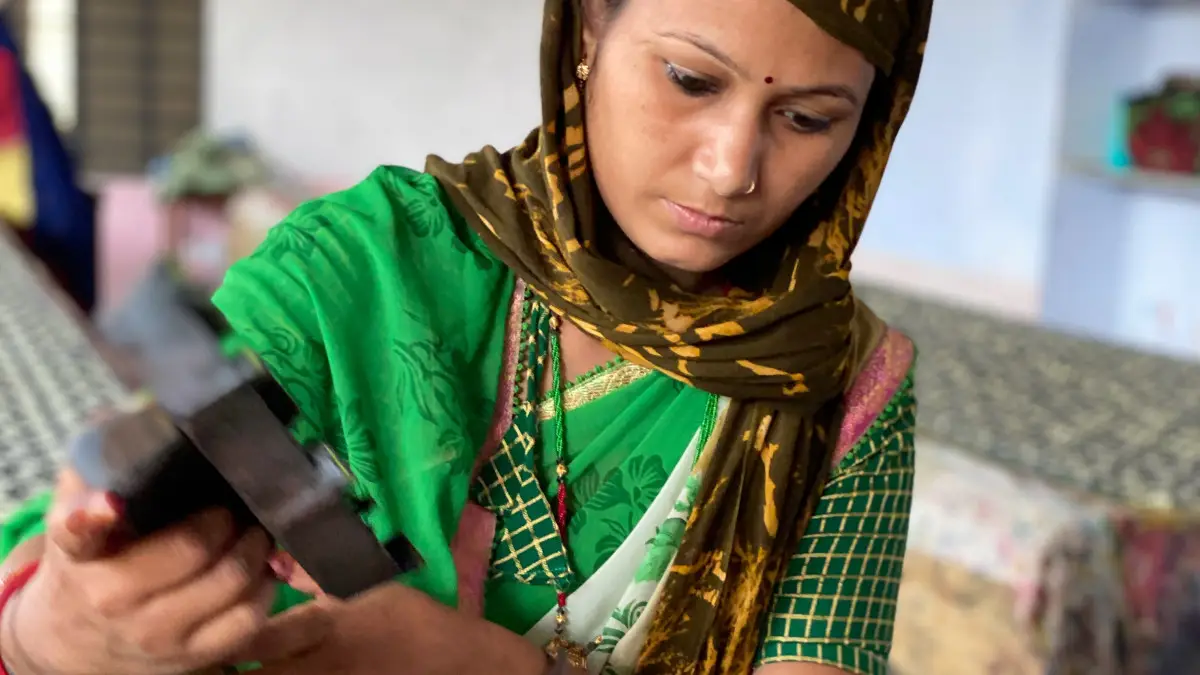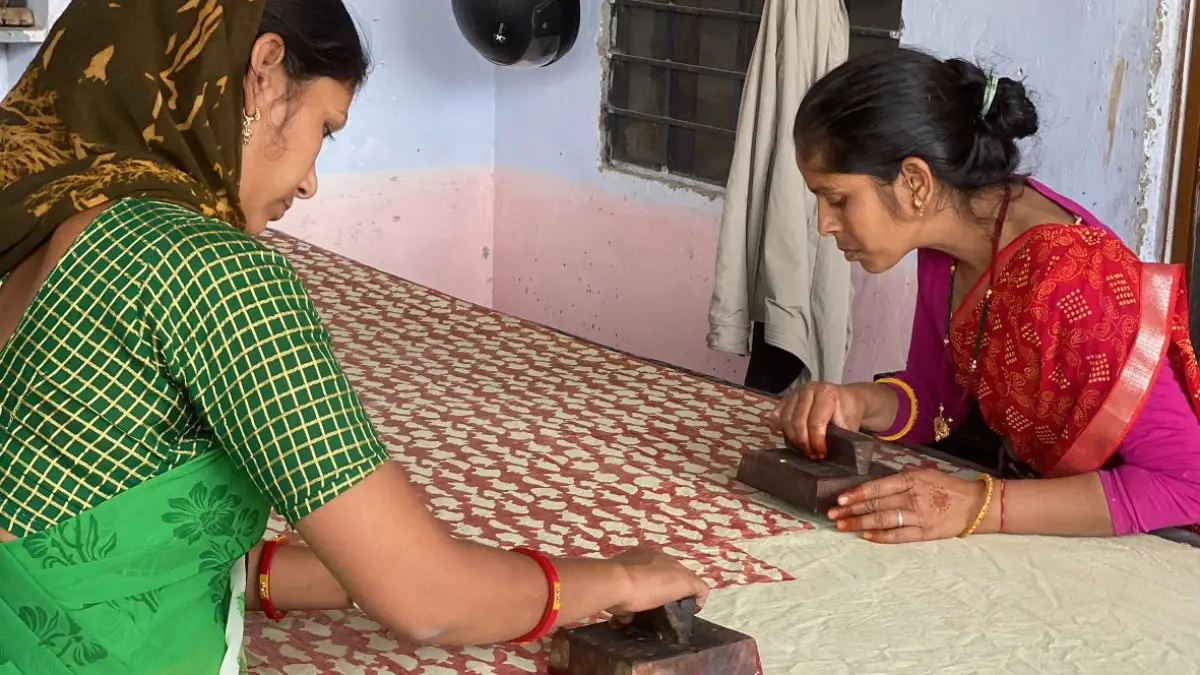
Merging Rajasthan’s Block Printing With Mindful Fashion
[ad_1]
Rajasthan’s Bagru is synonymous with the art of block printing, an ancient technique of stamping fabric with hand-carved wood blocks. While urbanisation has taken over most small villages and their traditions, this craft is being kept alive by omerown brands, that are hoping to reimagine the craft for a modern audience. One such brand that aims for a sustainable revival of block printing is Chhapa, a conscious clothing and accessories start-up that hopes to help artisans practising this craft earn a dignified livelihood.
“CHHAPA means to leave a Chhap (an imprint) in Gujarati. When a design gets stamped on any material using a wooden block, it is called the Chhap. Since I wanted to rejuvenate the block print art and decided that all the products will revolve around this technique, I couldn’t find any better brand name than Chhapa,” says Shipa Patel, founder of this family-run business.

They are based out of Ahmedabad and Jaipur, the latter being where their workshop is located and most of the artisans that practice block printing are from this region. It was a trip to a small village that led Shipa to her calling. “My first encounter with Block Printing was after my college days when I visited a small town near my village in Gujarat, called Deesa. Being an art lover and admirer of handmade things, I was instantly fascinated by the whole process of Block Printing. I approached the artisans to print a few samples. As I got more involved in the process, I realised that the artisans and art are really going through a bad phase. Many were on the verge of giving up practising this art because in today’s fast paced world, most textiles are printed using high-end machines. The process of hand weaving and natural dying with hand block printing is dying slowly and I don’t want artisans to give up on the beautiful art which has been passed to them through generations,” she adds.

Sustainable clothing brand Chhapa was founded in 2013 to give back to the community of block printing artisans. Today, they work with three fundamental principles – to do what is best for the environment, the artisans and the customers. “We source materials from different parts of India and where possible, directly from weavers to support small hand weaving units which don’t contribute to carbon footprint in terms of manufacturing. Our printing also gets done through hand block printing. While cotton fabrics cannot be recycled, they can be up-cycled to create a lot of different useful products so it contributes in some way to the circular economy,” Shipa adds.
The team also uses eco-friendly azo-free dyes in the process, and upcycle most of the waste generated during manufacturing. But what makes Chhapa click with its customers? “The uniqueness of Chhapa is mainly the prints. Our designs are modern, casual and contemporary contrary to traditional block prints, which has given new flavour to the art and has attracted the younger generation as our customer base. Moreover we are very particular about choosing quality fabrics so we can deliver a 100% pure cotton experience to our customers. We always wanted to connect with a younger audience and make them more environment conscious,” says Hardik Patel, Shipa’s husband who also runs the business.

In their drive to popularise block printing, Chhapa launched their online store in 2017 (www.chhapa.in ) and a flagship retail store in Ahmedabad in 2018. The artisans they support have today rekindled their generational love for the craft. “When the artisans had started working with us, we were unable to adequately provide for them, but now they have had to extend their printing facility to be able to keep up with the demand. This is the single most important thing we are very proud of,” says Shipa.
Much like Chhapa, there are many brands that are promoting mindful and slow fashion. On this uptake of conscious labels across India, Shipa says, “We have all been guilty of committing one particular crime: being caught in the frenzy of marked down items and annual sales. We purchase things we don’t need, items that are neither our style nor flattering. Why? Because they are on sale. But we need to stop, as this goes against everything mindful living represents. Fashion needs to stop being disposable. That is why there are so many movements and strides in the fashion industry to encourage sustainable fashion and a circular economy that considers not only the sourcing of raw materials and manufacturing, but recycling textiles after use. However, as consumers, we need to take our share of responsibility and be savvier when entering a store and choosing garments.”
[ad_2]
Source link


